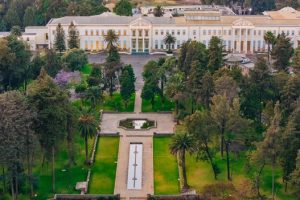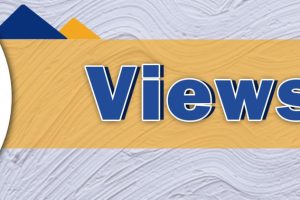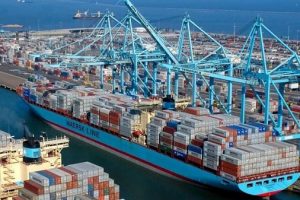
We usually hear the expression that a democracy cannot be built without a robust and independent press or we can say the media in general. But we can also say that no democracy can thrive or even survive without a truly independent, professional and neutral media always in the watch of government activities. In fact, it is submitted that a strong and well qualified media is the biggest ally of democracy.
The role of the media in any society is vital not only because does it inform the public the facts that may be hidden or underreported by politicians, but it also provides different perspectives, analysis and interpretations of facts and events and on what exactly goes on in government in the given country. The media clears equivocal developments and awakes the public about their rights and responsibilities; it does the same in government. Any potential or real corrupt practices including abuse of power are averted by truly professionally apt, neutral, ethical, independent and strong media. That is why the media may not be well looked at by those governments with autocratic tendencies. A free media is hence considered an ally of the public.
Fierce debates have been staged on how the media are allowed to operate in the emerging democracies. The media in the Western democracies is well established. The tradition has been growing along the years. It has deep and untouchable roots. So much sacrifice has been paid for its consecration. It is one of the pieces of pride that these societies exhibit.
Freedom of expression is enshrined in clear terms in their constitutions, laws and practice. There are lots of judicial pronouncements protecting this freedom jealously, and there are landmark cases where any encroachment on these rights had been soundly defeated in courts. Vast jurisprudential opinions and explanations escorted by the reasoning of the jurists are available for reference.
Beyond the three tiers of government i.e. the executive, the legislative and the judiciary, the media is considered as the fourth branch of the state. This shows how fundamental and irreplaceable their role is.
However, unfortunately the same cannot be asserted when it comes to developing countries. Ethiopia has had its ups and downs when it comes to freedom of expression and more specifically, freedom of the press.
There was some freedom of expression during the imperial times but it was more or less confined to the then Haile Selassie I University, (now Addis Ababa University) the ‘island of freedom’ as it was labeled. ‘Subversive’ publications were allowed to circulate inside the campus. But it was another story if it was outside. The university had its famous ‘academic freedom’ which was considered ‘unassailable’. But later on it was annulled as the student movement and struggle intensified and spread. Even the ‘sovereignty’ of the campus was also violated when troops were allowed to penetrate the compound to impose the wills of the then monarchy.
Evidently, the regime had felt threatened because it realized that it was not popular with its policies and the way the rights of the masses were treated. Basically, the system was autocratic and feudal and cared little about these concepts. The members of the autocracy enjoyed the wildest of privileges and wealth while all the rest languished in dire poverty and destitution. The disparity was enormous, the injustice was pervasive, the students’ rage was outpouring.
Once the monarchy was ousted there was what looked like a revival of the media for a while. People were allowed to write whatever they felt until the honey moon period expired and the military’s intolerance of criticism pushed the media to be labeled ‘counter revolutionary’, ‘spokesmen of imperialism’ or ‘reactionary’ forces etc. They became the target of ruthless campaign and the junta turned no stone unturned to do away with them and replace them with their sycophant equivalent. And once again it was the end of whatever faint beginnings of a free press existed.
As all totalitarian governments do, the media fell under the full control of the government. In a true democracy the media is rarely tampered with unless there are emergency public security or safety issues. Those are exceptional measures in exceptional circumstances which could be justifiable or tolerated.
After the demise of the Derg, then came the EPRDF government. Its policies regarding the media were mixed as it were. It seemed to advocate for freedom of expression and put it on paper; but in practice it had limitations. After it consolidated full powers and put the entire state apparatus under its firm grip abuse became normal.
Like in all transition periods the first years were completely free, some even called it ‘dangerously free’ when a plethora of media outlets mushroomed flooding the streets of Addis. Readership increased astronomically. As opposed to the oppressive years of the Derg, it appeared that a ‘new reign of hope and brilliance’ was in the horizon. There was nothing that was not published and brought to the media. There was no taboo. Even pornographic publications incompatible with the long standing tradition of the public were published. Rules of decency were violated. I remember campaigns launched by family leaders and elderly advocating for more rigorous control. Letters were written to the premier.
Some unscrupulous elements made a huge profit out of sales of such dirty publications, some even done with coloured pictures.
The newly found freedom of expression as decreed by the newly approved Transitional Charter whetted the appetite of the public to bask in this open environment. But it was later to be demonstrated that the public was not so ready after all to such wide openings. There were steps missed with the appreciation and management of the newly found freedom of expression. The newly decreed free press proclamation seemed to be abused.
However, again as the criticism against the EPRDF government mounted in quality and quantity, the tolerance and patience of the leaders began to fade. They began to take severe measures slowly but relentlessly against the more outspoken and critical media outlets with repeated warnings, striking out of licenses when necessary. Some media staffs were thrown to jail for ‘subversion’ and others for defamation or incitement for violence or worse still for ‘terrorism’.
As international press freedom advocates criticized the moves of the government, its position was to label them ‘gutter press’ capitalizing on ‘false stories’discrediting the government. They were often accused of colluding or acting as agents of subversive political parties that were banned from the country and operated from abroad.
The EPRDF government lasted 27 years until the ‘reformists’ took over. With these moves, media outlets which had disappeared following the strict measures taken earlier now began to reappear and flourish. The government of Dr. Abiy Ahmed welcomed all private media and invited them to be part of the reform and allowed to revive such TV channels as OMN (Oromo Media Network) and ESAT (Ethiopian Satellite Television) to broadcast even from Addis. It looked like a breakthrough. Blogs and social media were let free!
For the last couple of years and plus we have seen many media outlets flourish including some extremist private TV channels whose only rationale seemed to mount a campaign of denigration of whatever the incumbent is engaged in. Some have been plainly advocating hate and suspicion among communities who have lived for centuries together.
Clearly, the motive behind such narratives appeared to be political, cynically pursued in manners that were totally irresponsible. The demonstrations were clear when there was a national security issue following the recent killing of Artist Hachalu Hundessa.
These media took sides and decreed their own judgments and encouraged the large public to take arms against their neighbors! That was really despicable! Innocent lives were lost and immense property destroyed due to the ensuing violence. The role of these media was clear and undoubted. People have now begun raising their voices: Enough is enough!
How can such media be allowed to operate in clear violations of the state’s laws?! That is where severe measures were invoked by the public. Many said it was time to revise what the limits of freedom of expression must be, especially in an Ethiopian context.
Interference from foreign elements was also likely as the financial costs to sustain these media outlets were not controlled or supervised. In a way, this must serve the government to rise up to the challenge and face these extremists and avoid a repetition of what had happened in Rwanda in the nineteen nineties!
Ethiopians cannot dismiss the risks as our values of mutual respect among communities are being eroded by unscrupulous political animals who would not hesitate to push the country into chaos as long as they believed their objectives were met! It is high time that they be checked before any other even worse developments follow.
Time is of essence and people must be insulated from words of hatred and call for violence. Ethiopia is too important a state in the Horn of Africa and Africa as a whole to be left to the whims and caprices of failed politicians or aspirant autocrats that are threatened of being swept away by a new wave of reforms and activities by the incumbent. Freedom of expression must be allowed only for those who use it in a responsible manner. It has never been unfettered and can never be.
The Ethiopian Herald July 26, 2020
BY FITSUM GETACHEW




